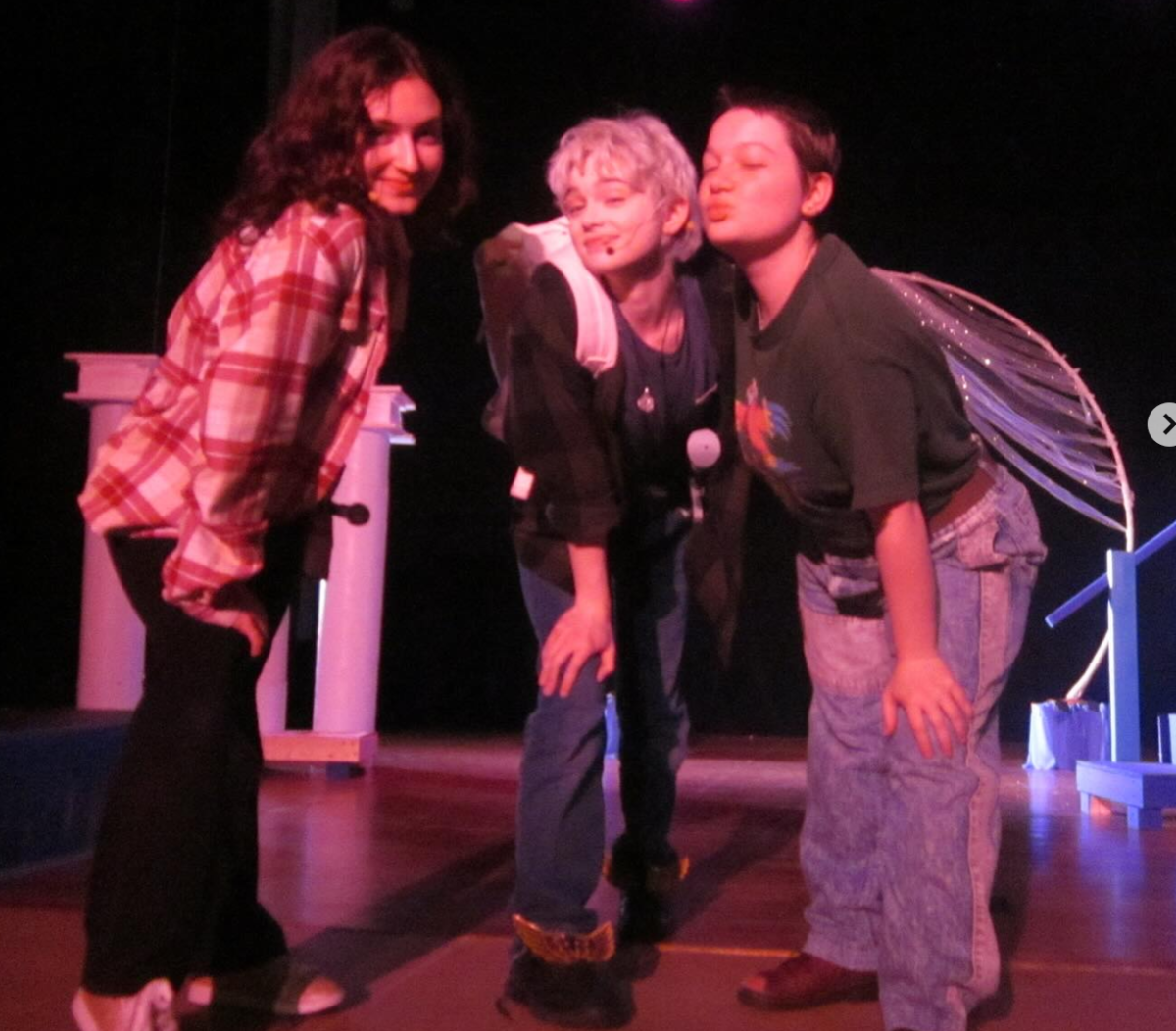Author Ali Hazelwood has released “Love, Theoretically” as the third installment of her series “The STEMinist Novellas.” The author began this trilogy in 2021, with her debut book being “The Love Hypothesis.”
Yet, as much as I enjoyed “The Love Hypothesis” and its sequel book “Love on the Brain,” I found that “Love, Theoretically” was laced with subplots that did not have satisfying endings. Her books are rooted in scientific academia, and while her characters face dilemmas that all women in STEM have experienced, Hazelwood forgot to flesh out a few ideas that could have increased the quality of the novel significantly.
The book follows protagonist Elsie Hannoway as she pursues a prestigious tenured position at the Massachusetts Institute of Technology. Elsie describes several instances of her receiving emails from students blowing off class for excuses that are seemingly made up.
At the start of the story, Elsie is an MIT adjunct who struggles with students that blow off her classes. During the tenure application process, she meets with one of the professors on the hiring committee, Monica Salt. This is where the problems start – Monica is a stranger to her, but pulls Elsie aside anyway before the interview and offers advice on how to impress the committee. This is pretty unprofessional already, but it’s made even worse when Monica shares the same tips with another candidate, George.
Then, when they are taking a break from the interviews, Dr. Jonathan Smith-Turner (commonly referred to as Jack Smith, with little explanation as to why he goes by Jack,) asks Elsie to meet him in the bathroom because she is his brother’s escort.
Yep, you read that right. Elsie Hannoway is a doctor by day and an escort by night.
It is extremely unusual that anyone would tell a prospective candidate to meet them in the bathroom to talk, but that is exactly what Jack asks Elsie to do. Was there no other hallway where they could speak privately? Then, they overhear a discussion (while still in the bathroom) that discredits Elsie’s work as a theorist (a major plot in the book is that Elsie is a theoretical scientist and Jack is an experimental scientist, and the two fields have a very strained relationship,) which causes Elsie to jump to extremes and immediately believe that Jack has a vendetta against her.
Hazelwood sets up these conflicts, but can’t seem to follow up and resolve them. The only thing that remains consistent is Jack and Elsie’s relationship, which starts on a very peculiar note.
Jack immediately recognizes Elsie as his brother’s “girlfriend” when she enters the room to be interviewed, and is instantaneously curious as to why she lied about her occupation as a librarian when meeting her as his brother’s date.
Jack later confronts Elsie about her night work, but the confrontation is quickly forgotten because Elsie has type one diabetes and has conveniently forgotten to eat, causing her to pass out. She passes out twice in the early stages of the novel, but it then seems to disappear as a problem, like many of the other forgotten subplots.
The job comes up again at a mixer at Monica Salt’s house, where it’s discovered that her son, Austin Salt, is one of Elsie’s clients. Elsie worries that Austin will say something to his mother, but Jack quickly defends her and when she asks him about it after they leave the mixer. He assures her with a subtle “don’t worry about it,” saying he “took care of it.” Now, as much as readers can assume that he threatened him with some kind of blackmail to remain silent, it seems unlikely that a problem like this would be kept so quiet if Austin Salt was as bad as he appeared to be. It shows that a lot of the characters and subplots have the potential to be fleshed out, but have no actual depth in the book.
The other candidate, George, apparently has been a long-term friend of Jack and is a woman whose full name is Georgina. She meets Elsie and immediately takes a liking to her, and the two quickly become friends. George hosts an event at her house, and a colleague of Jack’s named Andrea (nicknamed Andy) drunkenly, verbally eviscerates Jack for consorting with theorists like Elsie.
Shortly after this encounter, Jack and Elsie get into a fight regarding Elsie’s career and the not-so-sudden animosity between Jack and Elsie’s shared advisor, Christophe Laurendeau (or as Elsie calls him, Dr. L). Jack’s disdain for Dr. L began when he was young and read his dead mother’s journals regarding her work in academia as a theorist.
Jack had written an article in anger while he was still in high school that gained a lot of attention, despite his lack of experience in the academic world. Jack explains that the article was specifically targeted at Dr. L, but it shamed the name of theorists in the academic world.
Jack keeps this from Elsie, which causes their brief split before Elsie shows up at MIT after confronting Dr. L about how horrible he was to Jack’s mother and how he has made it difficult for Elsie’s career to progress. There is no explanation for the motive behind his actions in regards to Elsie or Jack’s mother. The only possible reason is that he is looking for a feeling of control that he lacks in every other area of his life. As much as the article that Jack published tarnished the work of theorists, it did not destroy Laurendeau’s career as he had once hoped.
If this sounds confusing, that’s because it is. This lack of motive is particularly unsatisfying, and while all of this is going on, Elsie seems to have a lot of pent-up guilt over something that is beyond her control. This leads Elsie to hold secrets from many important people in her life, and Jack notices, pushing her to come outside of her comfort zone and learn to be comfortable in what she feels.
That being said, the relationship that Elsie has with her family is extremely complicated. Her mother is dependent on her to solve the problems in her house, and Elsie feels constantly guilty for having type 1 diabetes, a medical condition that she has no control over.
The story was presented in a way that made it seem like Elsie’s relationship with her family was going to be a significant part of her story in this novel. Yet, nothing changes with her family – in fact, the way the problem seems to resolve itself is Elsie essentially telling her family “I’m not a therapist and I don’t care about appearances. Deal with it.”
There is a lot of information throughout the novel that points to Elsie’s behavior being caused by her poor relationship with her family, since she was often unable to express herself. Elsie describes how her role within her family seemed to change overnight, and there is no other explanation or depth to the problem. It appears as though she grew up in a lower-middle-class family that dealt with fighting siblings and parents who did not care so long as it did not affect their image, which is contradictory to the description she gives of an early childhood memory that she appears to be fond of.
There is an unusual hostility in the relationship that her twin brothers have that remains unspoken. She somewhat clarifies that her strained relationship with her parents comes from them paying for her health bills (which is something her parents should provide for their child without complaining, since the alternative would likely be Elsie dying,) but there is no indication as to why her relationship with her brothers is strained aside from the fact that they do not seem to care about anything but themselves.
The underwhelming end to the problems that seemed to cause the biggest problems in Elsie’s life managed to decrease the value of this book. It seemed like Hazelwood was looking to add more depth to her romance novels aside from being in the workplace and on some dates. However, if I were an editor, there is no way I would allow a book to be published that did not properly insert these subplots that have a major contribution to the overall trajectory of the story.
I have enjoyed Hazelwood’s work before, but I am hoping that if she continues on this path of including more depth in her work she will work on thoroughly developing the plotlines that she incorporated into her story.




